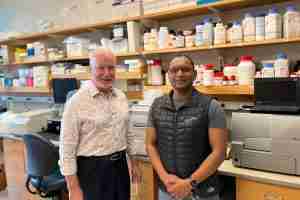
Johnson & Johnson Targets Philadelphia
for Health Equity Innovation Challenge
COVID-19 highlighted a significant number of healthcare disparities experienced by African American and Latino communities across the United States. To address this public health crisis, Johnson & Johnson is stepping up to eliminate health inequities for people of color in six cities across the country, including Philadelphia.
The city of Brotherly Love has a significant minority population, as well as a high poverty rate. The city’s demographic breakdown is 44% African American, 14% Latino and 36% Caucasian. The poverty rate is approximately 23%. A significant percent of the city’s minority populations lack health insurance. Data from the U.S. Census Bureau reveals that about 15.1% of Latino residents and 7.1% of African Americans lack health insurance. In contrast, 3.5% of Caucasians lack health insurance in Philadelphia.
It’s this divide that Johnson & Johnson hopes to bridge with its Health Equity Innovation Challenge. The challenge aims to support potential innovative solutions from local entrepreneurs, innovators and local community-based organizations. The challenge will begin in six cities where Black and Hispanic communities experience significant health inequities. In addition to Philadelphia, the challenge will also take place in Chicago, Detroit, Los Angeles, New Orleans and New York City. Johnson & Johnson will award funding to selected applicants from a pool of $1,000,000, as well as potentially provide mentorship from entrepreneurs and Johnson & Johnson executives.
Additionally, the program will provide access to the Johnson & Johnson JLABS ecosystem, which provides educational programming, visibility and networking opportunities with experts and venture capitalists.
Kiera Smalls, Co-Founder of Strides and Johnson & Johnson Health Equity Innovation Challenge Judge in Philadelphia, told BioBuzz that the African American and Latino populations in Philadelphia experience significant health inequities. Smalls said the aim of the J&J challenge is to “inspire innovation” that will address the health care inequities facing Black and Hispanic communities in the city. Smalls said increasing access to health care, as well as improving treatment and prevention options for illnesses that disproportionately impact these populations are key goals. Also, she called for greater advocacy for better community-based healthcare services.
“One of the key focus areas for the Health Equity Innovation Challenge is enhancing equitable access to healthcare, so presenting a solution that provides increased access to medications would be an interesting area for exploration. I hope to see submissions from the Philadelphia area that address these issues to improve access to not only medicines, but healthcare more broadly,” Smalls said.
Karyne Jones, President and Chief Executive Officer of the National Caucus and Center on Black Aging, Inc., told BioBuzz in an earlier interview that health inequality has been a serious challenge for minority communities for decades. The lack of access, or limited access to quality health care within communities like Philadelphia, Baltimore and others, has allowed chronic diseases to proliferate and impact the quality of life of minority individuals. When the pandemic struck, communities of color were significantly hard-hit by the virus, primarily due to pre-existing conditions within the community members, as well as some social determinants, Jones said.
“The problems are compounded when you don’t have access to quality health care and lack of affordable and safe places to live,” Jones said. “When a virus comes into the community, it doesn’t help to have these problems.”
As the Johnson & Johnson Health Inequity Innovation Challenge begins to address these issues, Smalls said she hopes to see additional resources and opportunities within Philadelphia that will make a big impact on addressing health inequity.
“A big first step is an initiative like the Health Equity Innovation Challenge that sources ideas for the community from the community and will award a total of $1 million in funding across six cities including Philadelphia to those with the best ideas,” Smalls said. “I’m looking forward to seeing the range of ideas submitted and working alongside the other judges to select innovative solutions that can have an impact in our city, and potentially beyond.”
Smalls noted that it’s more than just providing access to health care, the J&J challenge also hopes to develop solutions and pathways that will encourage more young African Americans and Latinos to enter life sciences careers. There are programs in place that do provide pathways for minority students to enter the industry.
Earlier this year, Project Onramp launched in Philadelphia with a goal of providing economically disadvantaged colleges students with paid summer internships at life science companies based in the area. For 2021, the goal of Project Onramp Philadelphia was to offer internship opportunities to 25 to 30 students in Philadelphia’s booming life sciences industry ecosystem.
The Johnson & Johnson Health Equity Innovation Challenge also has a pathway to bring these students into the industry.
“Johnson & Johnson understands that beyond the funding, there is more support needed which is why they are also providing awardees with mentorship and access to the JLABS ecosystem,” Smalls said.
Applications to participate in the challenge will be accepted through November 12.
Learn more here: www.jnj.com/healthequityinnovationchallenge.





